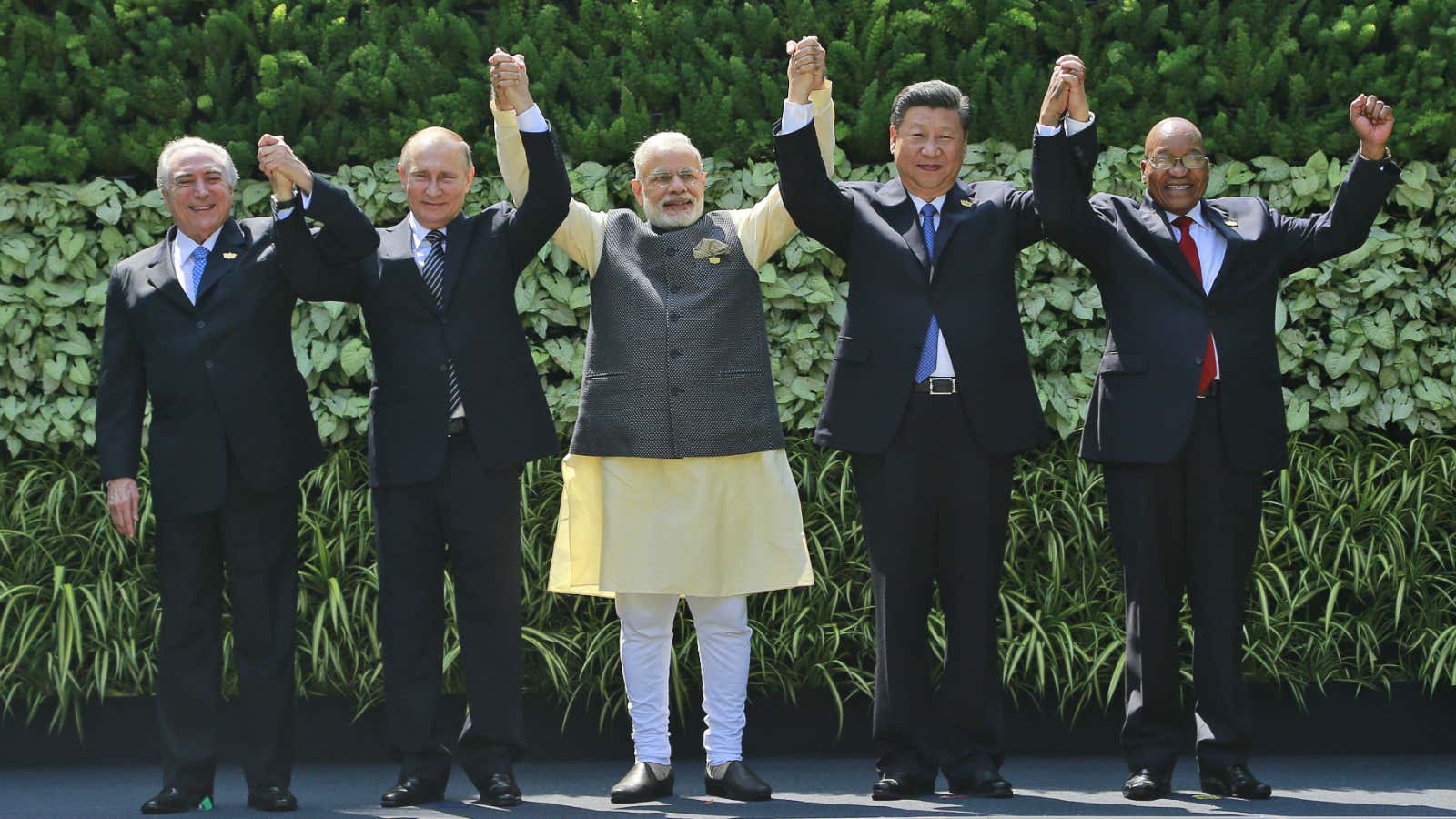A large number of Indians believe their country is the most influential in Asia.
Even as Beijing has taken giant strides in the past few years in its influence over the region, a new report shows 44% of the Indians surveyed believing that they have an upper hand. The Indian perception is largely in contrast to what many other Asian countries think, that China is the most influential in the region.
The “Survey on America’s Role in the Indo-Pacific” was held in March 2017 across Australia, China, India, South Korea, Japan, and Indonesia. Its results were published in a report on May 31 by the United States Studies Centre at the University of Sydney and the Perth USAsia Centre at The University of Western Australia.
“In the five other countries surveyed, only 0%-2% believe India is the most influential country in Asia today. Moreover, 53% of Indian respondents believe that India will have the most influence in Asia in a decade’s time, where 15% of Japanese and 6% of Australians agree, but only 1% of Chinese and Indonesians do,” the survey said.
China, meanwhile, has made some spectacular progress in this regard through initiatives such as One Belt One Road and the China Pakistan Economic Corridor.
Somewhat paradoxically, amid the optimism, a large number of those polled in India also believe that their country is better off with isolationism. “Australia and India are the most isolationist countries of those surveyed, with 43% of Australians and half of Indians agreeing with the proposition,” the report said. “The Indian respondents also appeared conflicted about India’s role as an international player.”
That’s not all. With India-China ties going through a rough patch, more Indians think China is expected to steer a conflict in the Asia-Pacific region in the next decade.
“After North Korea, China is perceived to be the next country most likely to start an interstate conflict,” the report said. “After the 35% of Indians who rated China most likely to start a conflict, 29% of South Koreans also nominated China (up from 8% in the previous survey), as did 25% of Japanese respondents (down from 37% in the previous survey). 15% of Indonesians and 13% of Australians nominated China as most likely to start a conflict in the Indo-Pacific.”
The survey also suggests that Indians are largely optimistic about the Donald Trump presidency with “61% believing that its best years are ahead of it.” About 53% of Indians also believe that Asia’s third-largest economy will have the most influence in Asia in the next 10 years. “More than half of Indian respondents (52%) feel that the US does more good than harm, should increase its military presence in Asia (53%) and has a positive influence on India (65%),” the report said.
India’s deepening ties with the US come at a time when many Asian countries believe the latter’s influence on Asia has waned significantly. “In the previous survey, 48% of Japanese respondents nominated the United States as the most influential country in Asia today; this percentage has fallen to just 14%. In Korea, the fall is from 60% to 31% and from 22% to 11% in Australia,” the survey said.
